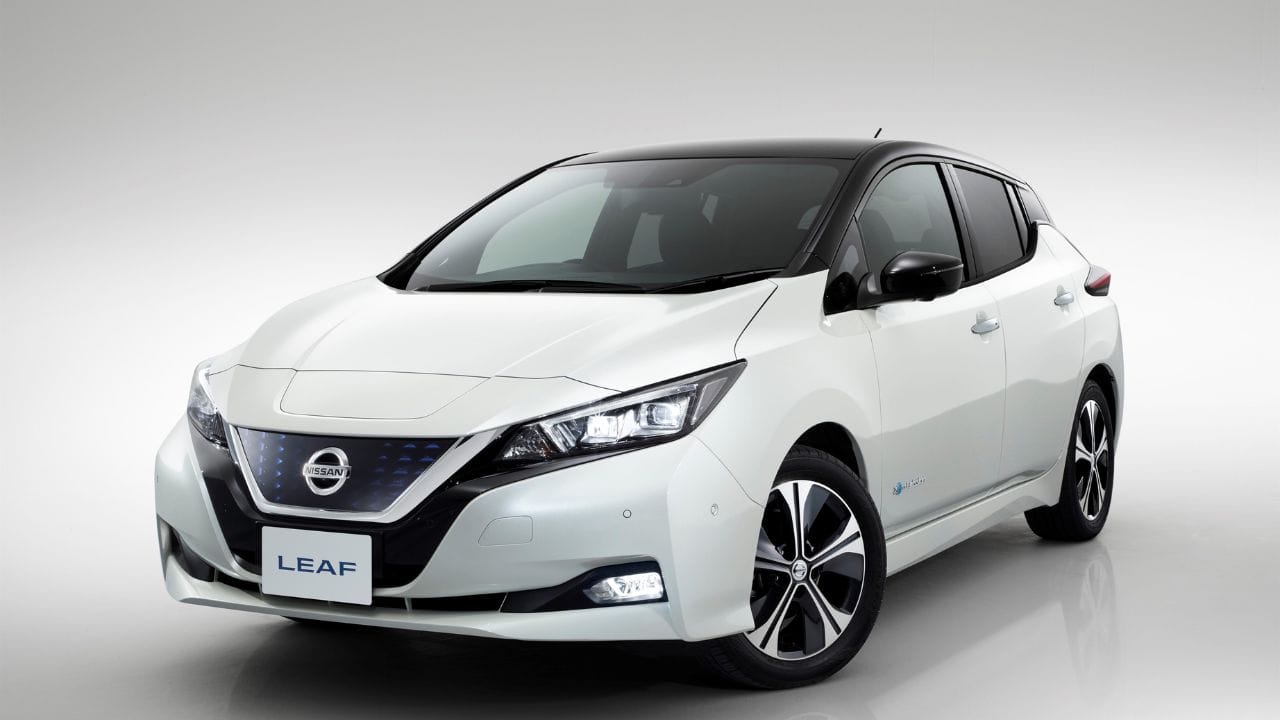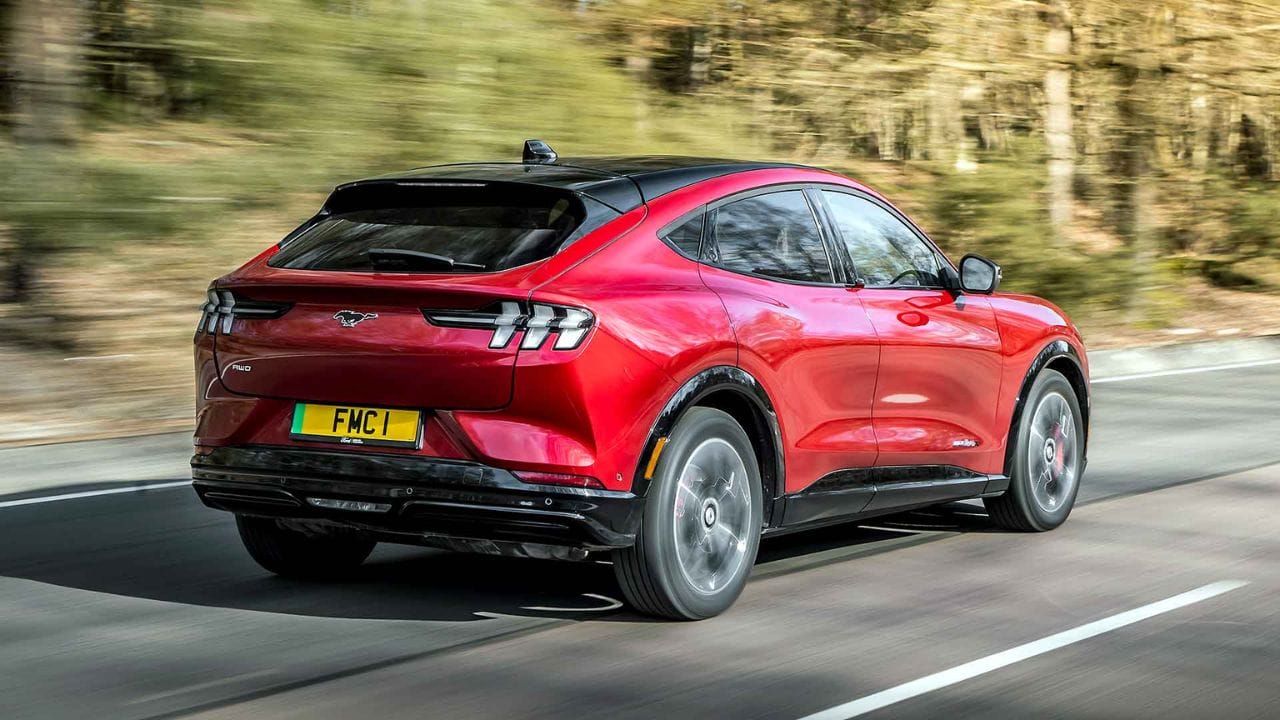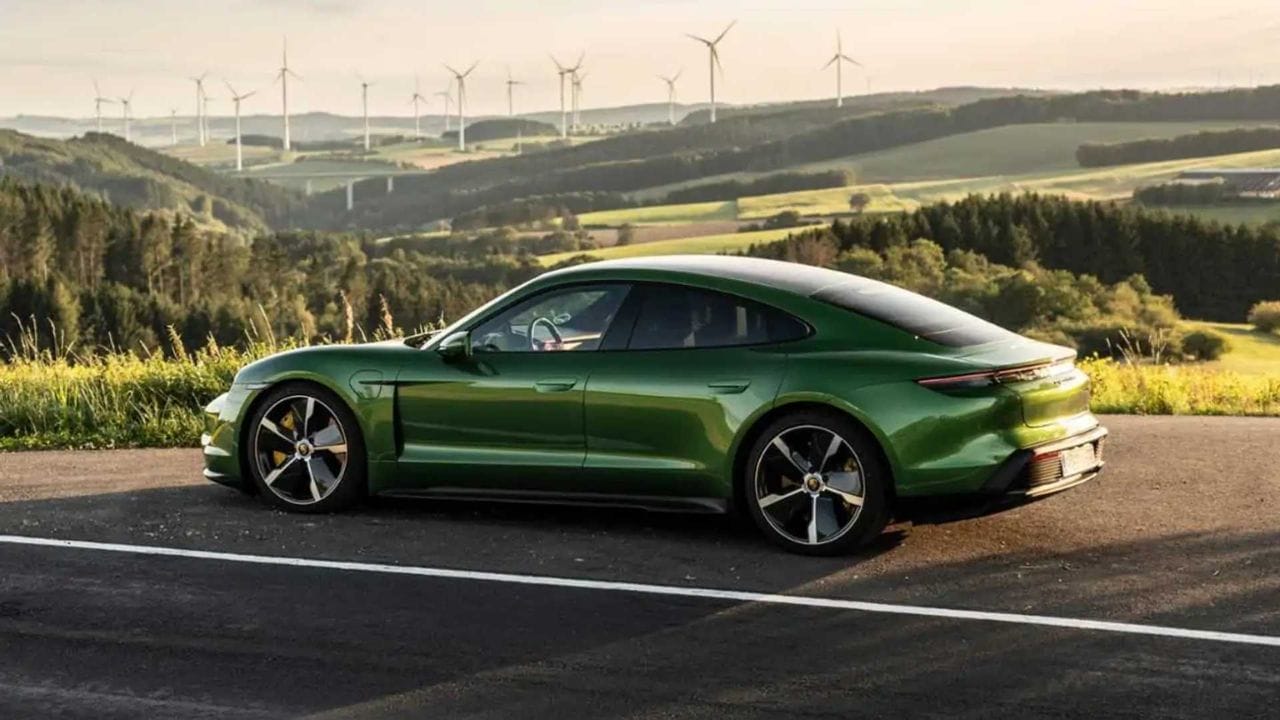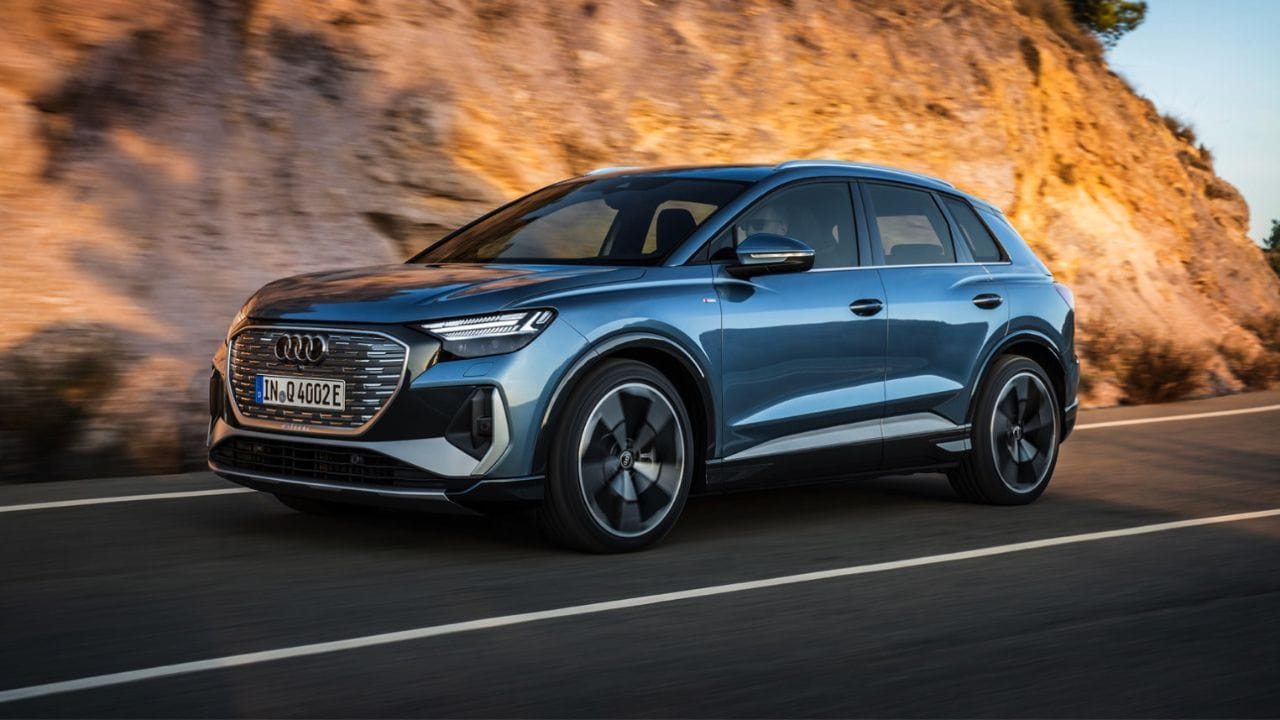Nissan Leaf e+ Latest Price, Specifications & User Review

In this article, we are going to learn all the details about Nissan Leaf e+, its specifications, top speed, range, acceleration, efficiency, charging speed, number of seats and latest price (Germany, UK, USA).
Are you a fan of Nissan?
Check out more Nissan Cars!
Table Of Content
Specifications Of Nissan Leaf e+
What Type of vehicle is Nissan Leaf e+?
What Is The Battery Capacity Of Nissan Leaf e+?
What is the acceleration of Nissan Leaf e+?
What is the top speed of Nissan Leaf e+?
What is the range of Nissan Leaf e+?
What is the efficiency of Nissan Leaf e+?
What is the fast charging speed of Nissan Leaf e+?
how many seats are there in Nissan Leaf e+?
What is the latest price of Nissan Leaf e+?
What is drivetrain system of Nissan Leaf e+?
Why Nissan Leaf e+ is so expensive?
What Nissan model is the most expensive?
What Nissan model is the cheapest?
Where do Nissan Leaf e+ have their battery packs?
How long does Nissan Leaf e+ battery last?
Is Nissan Leaf e+ a roadster or sportscar?
Specifications of Nissan Leaf e+
| Battery Capacity | 56 kWh |
| Acceleration | 7.3 sec |
| Top Speed | 157 km/h |
| Range | 325 km |
| Efficiency | 172 Wh/km |
| Fast Charge Speed | 390 km/h |
| Drive | Front Wheel Drive |
| Number of Seats | 5 |
| Price In Germany | €38,350 |
| Price In UK | £30,445 |
| Price In USA | $37,906 |
What type of vehicle is Nissan Leaf e+?
Nissan Leaf e+ is a Battery Electric Vehicle.
A battery electric vehicle (BEV) is a type of electric vehicle that uses an electric motor powered by a rechargeable battery pack instead of a traditional internal combustion engine (ICE). The battery pack is charged by plugging the vehicle into an electrical outlet or charging station.
What Is The Battery Capacity Of Nissan Leaf e+?
Nissan Leaf e+ has a battery capacity of 56 kWh.
“KWh” stands for kilowatt-hour, which is a unit of energy. The battery capacity of an electric vehicle is typically measured in kilowatt-hours (kWh) and represents the amount of energy that the battery can store.
For example, if an electric vehicle has a battery capacity of 60 kWh, it means that the battery can store up to 60 kilowatt-hours of energy. This energy can then be used to power the electric motor and propel the vehicle.
The battery capacity of an electric vehicle is an important factor that determines its driving range, or the distance it can travel on a single charge. Generally, the larger the battery capacity, the longer the driving range of the vehicle.
However, it’s important to note that other factors such as driving style, terrain, and temperature can also affect the driving range of an electric vehicle.
What is the acceleration of Nissan Leaf e+?
Nissan Leaf e+ has an acceleration of 7.3 sec.
When someone mentions “X sec acceleration,” they are likely referring to the time it takes for a particular vehicle to accelerate from 0 to a certain speed, typically measured in miles per hour (mph) or kilometers per hour (km/h).
For example, some high-performance electric vehicles such as the Nissan Leaf e+ can accelerate from 0 to 60 mph (0 to 97 km/h) in as little as 7.3 secs. This means that the vehicle can reach 60 mph from a standstill in just 7.3 secs.
What is the top speed of Nissan Leaf e+?
Nissan Leaf e+ has a top speed of 157 km/h.
The top speed of electric vehicles (EVs) can vary depending on the model and manufacturer. Some electric vehicles are designed for efficiency and have a lower top speed, while others are designed for performance and have a higher top speed.
In general, most electric vehicles on the market today have a top speed between 90 km/h (56 mph) and 200 km/h (124 mph). However, there are some high-performance electric vehicles that can exceed 250 km/h (155 mph) or even 400 km/h (249 mph).
What is the range of Nissan Leaf e+?
Nissan Leaf e+ has a range of 325 km.
The range of an electric vehicle (EV) refers to the distance it can travel on a single charge of its battery. The range of an EV can vary depending on several factors, including the size of the battery, the efficiency of the electric motor, driving conditions, and climate.
Most modern electric vehicles have a range of at least 200 kilometers (124 miles), with some models offering ranges of over 400 kilometers (248 miles) on a single charge. However, the range can vary significantly depending on factors such as driving style, terrain, temperature, and use of accessories such as air conditioning and heating.
As Nissan Leaf e+ has a range of 325 km, it means this electric vehicle can go up to 325 km on a single charge of its battery.
What is the efficiency of Nissan Leaf e+?
The efficiency of Nissan Leaf e+ is 172 Wh/km.
“Wh/km” stands for “watt-hour per kilometer” and is a unit used to measure the energy efficiency of an electric vehicle. It represents the amount of energy consumed by an electric vehicle per kilometer traveled.
A lower “Wh/km” value indicates that the electric vehicle is more energy-efficient and consumes less energy to travel a certain distance. This translates to a longer driving range per battery charge and lower operating costs.
For example, an electric car that consumes 20 Wh/km will consume 20 watt-hours of energy for every kilometer traveled. Whereas, an electric car that consumes 25 Wh/km will consume 25 watt-hours of energy for every kilometer traveled. Therefore, the first car is more energy-efficient than the second car.
What is the fast charging speed of Nissan Leaf e+?
The Fast Charging Speed of Nissan Leaf e+ is 390 km/h.
“km/h fast charging speed” is a way to measure how quickly an electric vehicle can recharge its battery while using a fast charging station. It represents the number of kilometers of driving range that an electric vehicle can gain per hour of charging time.
For example, if an electric vehicle can gain 100 km of driving range in 30 minutes of charging at a fast charging station, it has a fast charging speed of 200 km/h (i.e., 200 kilometers of driving range per hour of charging time).
It’s important to note that the fast charging speed can vary depending on the charging station’s power output, the battery capacity of the electric vehicle, and the charging method used. Additionally, charging speed typically slows down as the battery approaches its full capacity to avoid damaging the battery.
how many seats are there in Nissan Leaf e+?
Nissan Leaf e+ has 5 seats.
The number of seats in an electric vehicle (EV) can vary depending on the make and model of the vehicle. Many electric cars are designed to be similar in size and configuration to their gasoline-powered counterparts, so they typically have the same number of seats.
Most electric cars are designed to seat 4 to 5 passengers, with some larger models able to seat 6 or 7 passengers. However, there are also smaller electric cars that are designed for only 2 passengers.
What is the latest price of Nissan Leaf e+?
Here’s the latest price of Nissan Leaf e+:
| Price In Germany | Price In UK | Price In USA |
|---|---|---|
| €38,350 | £30,445 | $37,906 |
NB: The price may change depending on the time you are reading this article. The company may also change its policy or pricing. So, take the pricing figure as an approximation only.
What is drivetrain system of Nissan Leaf e+?
Nissan Leaf e+ has a Front Wheel Drive system.
All-wheel drive (AWD) in electric vehicles works similarly to AWD in traditional gasoline-powered vehicles. In an electric AWD system, each wheel is powered by its own electric motor, which allows for better traction and stability on the road.
Electric vehicles with AWD typically have two electric motors: one for the front wheels and one for the rear wheels. The motors can work independently or together, depending on the driving conditions. When the vehicle needs more power or traction, the two motors work together to provide more torque and better handling.
AWD in electric vehicles can also help to improve the vehicle’s efficiency by using regenerative braking. When the driver applies the brakes, the electric motors act as generators, converting the vehicle’s kinetic energy into electrical energy, which can be used to recharge the battery.
Overall, AWD in electric vehicles provides better handling, traction, and efficiency, making it an attractive option for drivers who want a reliable and high-performance electric vehicle.
Why Nissan Leaf e+ is so expensive?
There are several reasons why the Nissan Leaf e is relatively expensive compared to other electric vehicles on the market. One reason is that it offers advanced technology and features that are not found in other electric cars. For example, the Leaf e comes with a long-range battery that can travel up to 226 miles on a single charge, which is one of the longest ranges available in an electric car. Additionally, the Leaf e has a fast-charging system that can recharge the battery to 80% in just 40 minutes, making it convenient for drivers who need to recharge quickly. Another reason why the Nissan Leaf e is expensive is that it is built with high-quality materials and components. The car has a spacious and comfortable interior with advanced safety features, such as automatic emergency braking and lane departure warning, which add to the cost of the vehicle. Finally, the cost of producing electric vehicles is generally higher than that of traditional gasoline-powered cars due to the expensive battery technology and other components required. As the technology improves and becomes more widespread, it is likely that the cost of electric vehicles like the Nissan Leaf e will decrease over time.What Nissan model is the most expensive?
The most expensive Nissan model is the Nissan GT-R Nismo, which has a starting price of around $210,000.What Nissan model is the cheapest?
The cheapest Nissan model currently available in the United States is the Nissan Versa, which starts at a base price of around $15,000.Where do Nissan Leaf e+ have their battery packs?
The Nissan Leaf electric vehicle has its battery pack located underneath the vehicle floor, between the front and rear wheels. This design helps to lower the vehicle's center of gravity and improve its stability, while also maximizing interior space. The battery pack is comprised of lithium-ion cells and has a capacity of either 40 kWh or 62 kWh, depending on the model year and trim level. The battery pack is also equipped with a thermal management system to help regulate its temperature and optimize its performance and lifespan.How long does Nissan Leaf e+ battery last?
The lifespan of a Nissan Leaf e battery can vary depending on a number of factors such as usage, environmental conditions, and maintenance. However, Nissan claims that the battery in the Leaf e should last up to 8 years or 100,000 miles, whichever comes first. It's worth noting that the battery's range may decrease over time, but Nissan offers a warranty on the battery for 8 years or 100,000 miles, whichever comes first, to ensure that it meets certain performance standards.Is Nissan Leaf e+ a roadster or sportscar?
The Nissan Leaf e is neither a roadster nor a sports car. It is an electric compact car designed for everyday driving. The Leaf e is known for its efficiency and eco-friendliness, as it produces zero emissions while driving. It is a popular choice for those looking for a practical and environmentally conscious vehicle.Does Nissan Leaf e+ use fuel?
No, the Nissan Leaf e is an electric vehicle and does not use fuel. It is powered by a rechargeable battery and an electric motor.Is Nissan Leaf e+ a hybrid?
No, the Nissan Leaf e is not a hybrid. It is a fully electric vehicle (EV) that runs entirely on electricity stored in its battery. It does not have a gasoline engine or a hybrid drivetrain.can Nissan Leaf e+ go offroad?
The Nissan Leaf e is an electric vehicle designed primarily for city driving and commuting. While it may be capable of handling some light off-road terrain, it is not specifically designed or recommended for off-road use. If you are looking for an electric vehicle that is better suited for off-road driving, you may want to consider options like the Tesla Model X or the Rivian R1T, which are designed with more rugged capabilities in mind.can Nissan Leaf e+ be charged at home?
Yes, the Nissan Leaf e can be charged at home using a standard 120-volt household outlet or a 240-volt home charging station. The time it takes to fully charge the vehicle will depend on the charging method used. A 120-volt outlet will take approximately 24 hours to fully charge the battery, while a 240-volt home charging station can fully charge the battery in as little as 7.5 hours. It's important to note that the charging time can vary based on factors such as the battery's current state of charge and the temperature of the battery.
Hey, this is Muntaseer Rahman. A sucker for Electric Vehicles. I am an entrepreneur & blogger. Recently completed graduation on Electronics & Communication Engineering. Later, completed MBA. Now focusing fully on my businesses, blogs & adventures.



